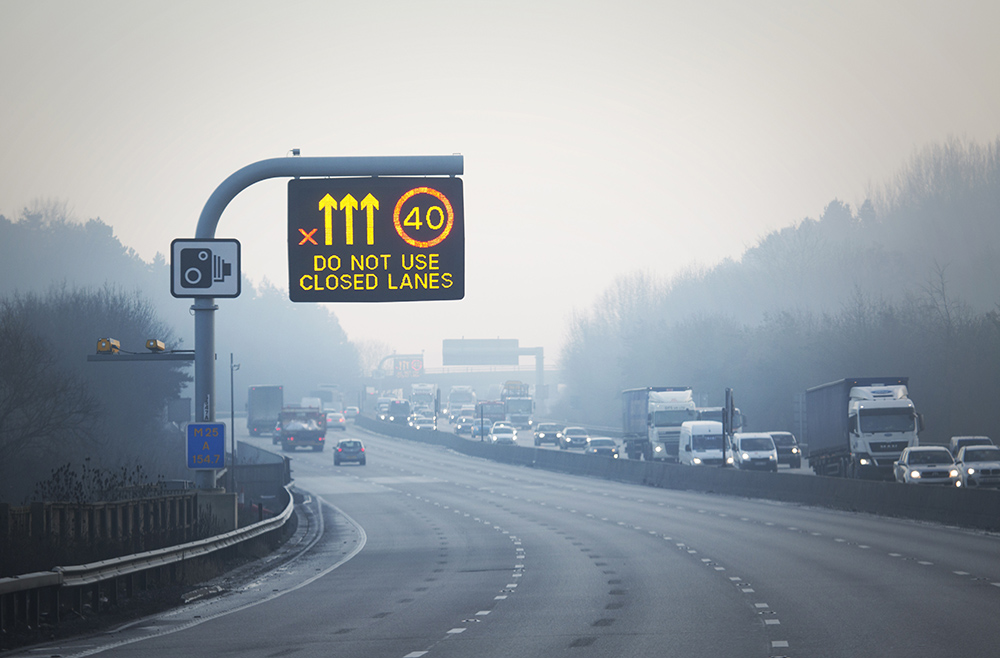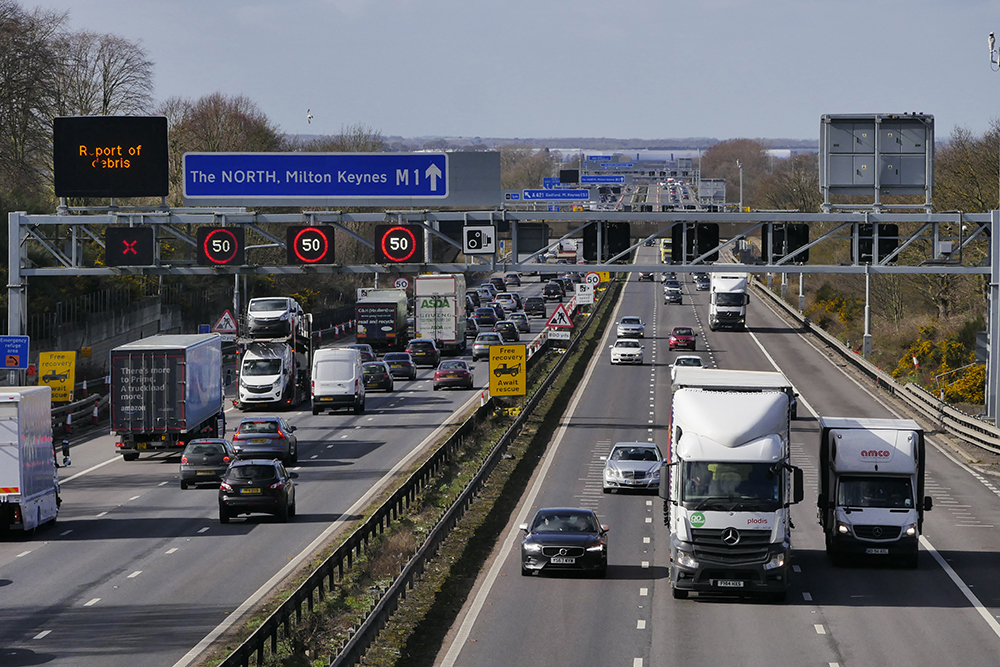Eight out of 10 UK drivers think that removal of hard-shoulders on smart motorways has made motorways more dangerous than four years ago, according to an AA-Populus poll of 20,845 drivers.
Some drivers even refer to the lay-bys on these motorways as ‘death zones’.
The main concern is the lack of lay-bys when the hard-shoulder is used as a running lane for the 130,000 AA members (and thousands of others) who break down on motorways each year. The
The AA says that if a car breaks down without sight of a lay-by it is likely to stop in a live running lane where it will be at increased risk of being hit from behind. If an HGV is parked in the lay-by it makes it almost impossible for a car to safely enter the lay-by.
Highways England has also reported a problem of drivers (in particular foreign trucks) parking in the ERAs when it is not an emergency.
Commenting, Edmund King OBE, AA president, said: “Four fifths of our members think that motorways without hard shoulders are more dangerous.
“Whilst we support measures to improve motorway capacity, we do not think that safety should be compromised. We do not accept that the current criteria of an Emergency Refuge Area or exit at least every 2.6km is safe.
“If drivers can see the next lay-by, they are much more likely to make it to the relative safety of that area even if their car has a puncture or is overheating. If they can’t see the lay-by, they often panic and stop in a live running lane. If more lay-bys are designed at the planning stage it will be less expensive and safer.
“It is time for the Government to go back to the drawing board and design a scheme acceptable to drivers.”
Amanda Stretton, motoring editor at Confused.com, comments, “There is a real need for British motorway systems to be improve, with new research predicting an increase of 60 per cent in motorway traffic by 2040. However the Government’s intention of turning hundreds of miles of hard shoulder into permanent lanes to expand capacity and tackle congestion issues has understandably split opinion.
"With speculation as to how safe these ‘all running lanes’ really are, there is concern from transport officials and MPs across the UK. In particular, in instances of emergency, run-off areas will be considerably smaller with far fewer emergency refuges.”
Nothing smart about ‘deadly’ lay-bys on all-lane running motorways, says AA
Eight out of 10 UK drivers think that removal of hard-shoulders on smart motorways has made motorways more dangerous than four years ago, according to an AA-Populus poll of 20,845 drivers. Some drivers even refer to the lay-bys on these motorways as ‘death zones’.








